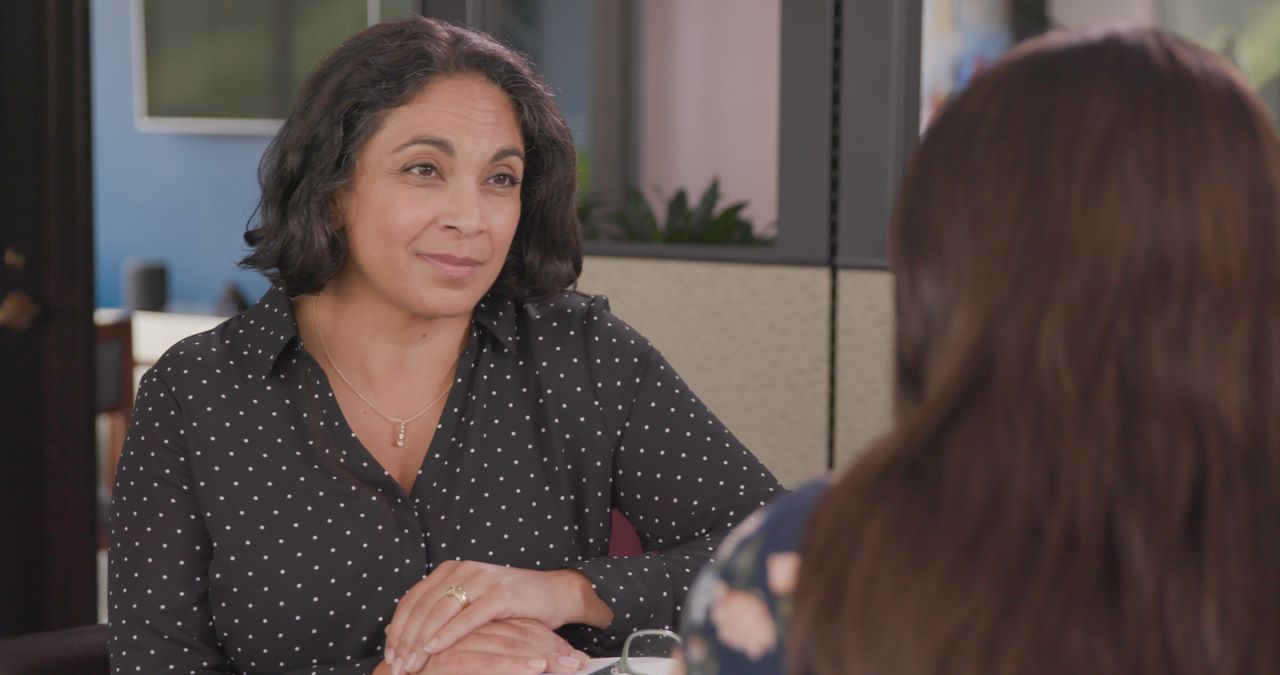
Let’s be honest. We all operate with bias to some degree or another. We enjoy spending time with people who share the same interests and activities as we do. We feel a connection to a perfect stranger when we find out we came from the same hometown. We naturally gravitate toward someone who speaks our language versus someone who speaks another language. Bias is not always a negative thing.
But when it comes to judging the intrinsic value of a person based on differences, or when it causes people to be treated unequally, it’s absolutely wrong.
It’s all too easy for bias (negative and positive) to slip in when we are interviewing candidates for job positions because we naturally gravitate toward people who are like us, or we react to first impressions. If this isn’t recognized and balanced, it can be a real problem and prevent us from hiring a diverse and well-balanced team for the organization.
Here is an overview of two common biases—Affinity Bias and the Halo/Horn Effect—and tips on how to keep them from sabotaging your interviews.
What is the Affinity Bias?
Also referred to as the “Just Like Me” Bias, Affinity Bias happens when you form an immediate connection with the candidate based on characteristics or experiences you value. Often the candidate reminds you of yourself, or someone you care about or admire.
Many times, the Affinity bias occurs when we see aspects of ourselves in the candidate, such as:
- Shared characteristics (gender, ethnicity, race, age)
- Shared background (same college, past employer, home state)
- Shared interests (activities, sports, hobbies)
- Similar experiences (family, children, career choices)
Unfortunately, the friendly view caused by the Affinity Bias may cause you to skim over answers, miss red flags, or justify a candidate’s weak answers. It can also keep you from giving equal consideration to candidates with whom you don’t instantly connect. And that can lead to hiring the wrong person for the job. What can you do if the “Just Like Me” Bias is clouding your judgment? See it for what it is. If you find yourself feeling an affinity toward the candidate before you get into the interview questions, acknowledge the bias, set it aside, and focus on the interview.
What is the Halo/Horn Effect?
The Halo Effect happens when you form a positive bias too early in the interview and then ask follow-up questions to support and affirm your favorable opinion. You feel so good about this person that you only want to ask questions that will affirm the decision you’ve already made.
While it can occur alongside the Affinity Bias, it often happens with a positive first impression even if you don’t have an instant connection with the person. In other words, you are impressed by something you learn about the candidate:
- Overcoming barriers and challenges to get where they are today
- A degree from a prestigious university
- Previous job at a renowned company
- Awards or accolades
The Halo Effect can also surface when our initial impression of the candidate is enhanced by things like their physical appearance, their resemblance to someone we know, or their connection to someone in the organization (e.g. the co-worker who referred them to the organization).
Unfortunately, the one-sided positive view caused by the Halo Effect can keep you from giving equal consideration to more qualified candidates. And that can lead to a premature hiring decision that hurts the organization in the long run. What’s the answer? Seek Contrary Evidence.
Seeking Contrary Evidence involves asking probing or follow-up questions that uncover examples of behavior that are different, or opposite, from the behavior the candidate has already described.
In the case of the Halo Effect, you are getting a one-sided, glowing view of the candidate. So, you need to seek contrary evidence to balance the picture. One way of doing this is to pose questions that uncover examples of less-than-ideal past work experience. It can sound a little like this:
“Thank you for sharing that great example of success. Now tell me about another time when things...
...didn’t go well."
...didn’t turn out as you hoped.”
...turned out differently.”
But don’t expect the process to be easy. Candidates only want you to see their best side, so they may push back or try to sidestep the question. If they resist, you must persist and pursue contrary evidence by saying things like...
“I think it’s fair to say that we’re all human—we all make mistakes occasionally. Tell me about a time when you wish you had acted differently with a customer, and why.”
“I think we can agree that none of us are perfect—we all make mistakes occasionally. Please tell me about a time when you had an upset customer and things didn’t go well; a time when, despite your best efforts, the customer just wasn’t happy. What happened?”
When you acknowledge the fact that we’re all human and we all make mistakes, you’re giving your candidate permission to drop his or her guard a little. By including yourself as a fellow mortal – with flaws of your own, you make it less threatening for them to share a past situation that may show a point of weakness. This allows you to see a more human side of the candidate and gain insight into the person’s ability to learn from experience and own up to errors in judgment.
The Horn Effect happens when you form a negative bias too early in the interview and it starts to influence the way you see and treat the candidate.
It can come into play for reasons as simple as the candidate:
- arrives to the interview late
- has a style or demeanor that strikes you as unprofessional
- reminds you of someone with whom you’ve had problems in the past
Let’s look at an example: A candidate, John, has just told you about a time his manager instructed him to include some other team members in the final version of a time-sensitive project. The deadline was pressing, and he didn’t think he had time to incorporate any new input from other people, so he saved everyone time and effort by finalizing it on his own and making the delivery date. In his opinion, the client was thrilled.
This story raises a red flag that makes you wonder if John often ignores his manager’s instructions, cuts corners to save time, or undermines teams by doing things “his way.” Because you’ve recently struggled with a challenging employee who exhibited similar behaviors, you start to mentally check John off your list.
When the Horn Effect bias sneaks in, the answer is again to seek contrary evidence. In the case of candidate John, you might say something like…
“Tell me about another time when you worked together with a team to overcome an obstacle or pressing deadline.”
“Tell me about a time when you were faced with last-minute changes and delays. How did you deal with this situation?”>
“Tell me about a time your manager asked you to do things a certain way, but you felt there was a more efficient way of doing it. What did you do?”
By asking follow-up contrary evidence questions, you allow the candidate the opportunity to offer other examples of behavior in similar circumstances that may contradict the negative bias that you’re feeling. You also have more data upon which to make a more informed decision. And who knows, John might really surprise you. After all, first impressions aren’t always correct!
How Interviewers Can Overcome Bias
As you can see, Seeking Contrary Evidence is an essential interviewing tool to use both when you are getting a one-sided positive view of the candidate or a one-sided negative view of the candidate. When you are aware of bias and use this tool, you uncover the complete picture of your candidates so that you can make a more balanced, thoughtful hiring decision.
Action Steps:
- Take a look at the interview questions you typically ask to assess a candidate’s past behavior. Write down a contrary evidence question for each question that will help you get a more balanced view of your candidate.
- Think about some of your past interviews. Can you think of a time when you were unintentionally influenced by Affinity Bias or the Halo/Horn Effect? What contrary evidence questions could you have asked?
- Here are a few other ideas for overcoming bias in hiring:
- Consider the way resumes are reviewed before interviewing even begins. Affinity Bias and Halo/Horn Effect can come into play as you’re simply reading information on a page. One tactic used by organizations is to have blind resumes, where the candidates’ name and other personal information is removed so that the individuals who determine which candidates will move forward base their decisions solely on job-related criteria.
- Engage in training that helps you identify any unconscious biases you might have and challenge them. Unconscious biases and stereotypes are often lurking in our first impressions.
- Look for opportunities to interview candidates as a team rather than on your own. That way you can hear and consider others' observations about a candidate and achieve a more balanced assessment.
EFFECTIVE TRAINING FOR OVERCOMING BIAS AND BUILDING INCLUSION
Unintentional Still Hurts
Overcoming Unconscious Bias









